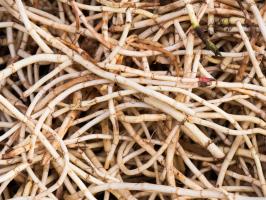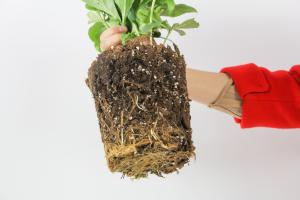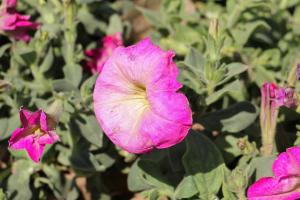What to Feed My Pot Plants
Pot plants, also known as container plants, are perfect for apartment living, patios, balconies, or any place where green space is limited. One of the main misconceptions about raising potted plants is that they can just survive on whatever soil they come in. However, this could not be further from the truth. Pot plants require the right type of nutrients to grow, thrive, and bloom. In this article, we will explore what to feed your pot plants to ensure they are healthy and beautiful.
Choose the Right Fertilizer
Choosing the right fertilizer is crucial when it comes to feeding your pot plants. Before you select a fertilizer, it is essential to know your plant's specific needs. For instance, if you have a flowering plant, you will need to select a fertilizer that is high in phosphorus. If you have a vegetable plant, then you will need a fertilizer that is high in nitrogen. Check the package label of the fertilizer to ensure you are selecting the one that is appropriate for your plant's needs.
Use Organic Fertilizers
Using organic fertilizers is an excellent way to feed your pot plants while keeping them healthy and environmentally friendly. Unlike chemical fertilizers, organic fertilizers are more sustainable and do not harm the soil. Organic fertilizers come in different forms, including compost, worm castings, and fish emulsion. They release nutrients slowly and provide excellent nourishment for your plants.
Know When to Fertilize
The timing of fertilizing your pot plants is crucial for their growth. During the growing season, you should fertilize your container plants every two weeks. However, during winter, you should not fertilize at all since your plants will be in their dormant phase. Over-fertilization can also harm your plants, so it's best to follow the specific instructions on the label of your fertilizer.
Other Ways to Nourish Your Pot Plants
Aside from fertilizing, there are other ways to nourish your pot plants. One way is to use Epsom salts, which are magnesium sulfate. Adding Epsom salts to your pot plant's soil can improve magnesium levels, provide additional nutrients, and help your plants grow better. Another way to nourish your pot plants is to mix coffee grounds into the soil. Coffee grounds are acidic and can help acid-loving plants, such as roses and tomatoes, grow better.
The Bottom Line
Feeding your pot plants the right nutrients is essential for their growth and health. By selecting the right fertilizer, using organic fertilizers, knowing when to fertilize, and using other nourishment methods, you can ensure that your pot plants grow to their full potential. With proper care, your potted plants will thrive, and you will enjoy beautiful, healthy plants in your small space.

 how many times do yo...
how many times do yo... how many planted tre...
how many planted tre... how many pine trees ...
how many pine trees ... how many pecan trees...
how many pecan trees... how many plants comp...
how many plants comp... how many plants can ...
how many plants can ... how many plants and ...
how many plants and ... how many pepper plan...
how many pepper plan...

































